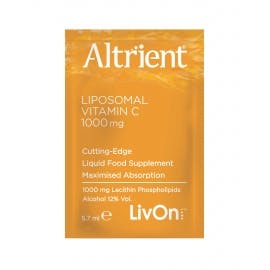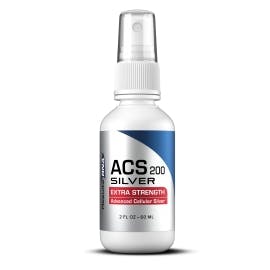Urban lifestyle - immune essentials for city-dwellers and commuters
The onset of autumn brings many changes, not just to the weather but also to our health and wellbeing. If you face a daily commute to the city or live in a crowded urban environment, then you could be more likely to succumb to the latest seasonal bug compared to someone who spends most of their time in a rural setting. By becoming aware of factors in your urban lifestyle that could be challenging for your immune system you may be more able to maintain glowing health across the months ahead.
Immune challenges
A daily commute on busy public transport may significantly increase the workload of the immune system. Spending an hour or more on cramped public transport undoubtedly ups your exposure to cold and flu viruses from fellow commuters. A stuffy work environment in an office with back-to-back desks and windows that remain closed with cranked up central heating often creates a perfect environment for germs to be circulated.
Aiding natural defences is a great place to start. Washing hands regularly throughout the day and frequently using an anti-bacterial wipe on office door handles, your computer keyboard or the shared office phone is a good habit to get your colleagues on board with to help stop seasonal microbes from spreading around the office.
Handy colloidal silver spray
How about using a handy natural anti-bacterial spray for your hands, mouth and throat after leaving public transport? After all, think about how many germ-ridden hands have been holding the same support pole on the tube. Using a colloidal silver solution may be a good precaution. Silver is thought to have been used by Hippocrates, the father of medicine, against a wide variety of microorganisms. Colloidal silver is extremely versatile and can be sprayed onto the inner part of a scarf placed over the mouth, onto surfaces or hands and into the mouth. Look for a colloidal silver that has a strength of 10 parts per million (ppm) or more. ACS 200 is the most effective colloidal silver available today. It contains 200ppm of silver in ultra-purified water and multiple studies demonstrate that ACS 200 is many thousands of times more effective at killing pathogens than any other silver.
Urban stress
A busy lifestyle with long work hours could put pressure on the body’s nutrient and energy reserves. Studies indicate that work pressures are responsible for almost 50% of all cases of stress1. Work-related stress may make it feel like there is no time for self-care or downtime and this may lead to certain habits becoming established. Reaching for a coffee or sweet treat when feeling tired during the day or pouring a glass of wine to unwind at the end of the day are common go-to mechanisms to offset stress. Work or life pressures may lead to sleepless nights. Both stress and poor sleep may negatively impact immune function leading to an increased susceptibility to infections2.
Taking 10-15 minutes for yourself twice a day is a good way to begin some self-care. Use the time to practise mindfulness, listen to a guided meditation, read a book, listen to music or simply go for a walk. Stress reduction techniques may be key for supporting many aspects of health and the key is finding what works for you. Although it may be tempting to use vigorous exercise to unwind the mind, gentle exercise puts less physical stress on the body. Yoga, Pilates, swimming and cycling are great ways to exercise the body gently.
Powerful protein
Nutrition advice for those living a stressful and busy lifestyle include topping up on protein intake throughout the day as this helps support blood sugar and sustainable energy and may also curb cravings for caffeine and sweet food. Protein is also used to make essential immune cells and good choices include oily fish, white fish, chicken, turkey, eggs, nuts and seeds.
Vitamin C for winter health
Environmental stress from exposure to city air pollution may also impact lung function and immune responses to infections 3. Environmental pollution is linked to cellular oxidative stress, where the natural antioxidant defences against damaging free radical molecules (toxins) may become overwhelmed. Vitamin C contributes to the normal function of the immune system and protection of cells from oxidative stress, so this key vitamin certainly has its work cut out at this time of year.
The human body cannot synthesise vitamin C so we are all reliant on a good daily intake from purple and red berries, green leafy vegetables and citrus fruits. But city-dwellers and commuters would be wise to top-up with liposomal Altrient Vitamin C supplement to ensure optimum levels. This particular form of vitamin C comes in a handy travel sachet, is highly absorbable and is gentle on the tummy, unlike other (often cheaper) forms of vitamin C such as ascorbic acid.
Winter blues
It is not just immune health that changes during the cooler seasons, mood could also take a downturn. The thought of commuting in the dark or exercising outside in the colder temperatures can be off-putting. Issues such as low mood and motivation or seasonal affective disorder (SAD) can all contribute to feeling like you want to hibernate. In addition to this, a reduction in activity and exercise may result in changes in your weight or body shape which could affect your mood or self-esteem.
Aim to get daylight exposure, at least 30 minutes before noon, to help ensure that your natural circadian rhythm is set. Light entering the eye is key for a normal sleep cycle and for helping maintain normal serotonin levels for a happy relaxed mood4 and for winter weight management5. For additional nutrition support there is liposomal Altrient ALA which contains a highly absorbable form of alpha lipoic acid, a naturally occurring compound that has been found to help support normal metabolism7. Although some animal foods contain alpha lipoic acid a supplemental form may be useful at this time of year.
Working or living in the city may bring inevitable health challenges during the winter but keeping healthy habits over the winter months may help you maintain glowing health.
Susie Debice BSc Hons Dip ION - Food Scientist and Nutritional Therapist
REFERENCES:
- http://www.hse.gov.uk/statistics/causdis/stress.pdf
- Bryant, P. A., Trinder, J., & Curtis, N. (2004). Sick and tired: does sleep have a vital role in the immune system?. Nature Reviews Immunology, 4(6), 457. https://www.nature.com/articles/nri1369
- Chauhan, A. J., & Johnston, S. L. (2003). Air pollution and infection in respiratory illness. British medical bulletin, 68(1), 95-112. https://academic.oup.com/bmb/article/68/1/95/421216
- McClung, C. A. (2013). How might circadian rhythms control mood? Let me count the ways... Biological psychiatry, 74(4), 242-249. https://www.sciencedirect.com/science/article/abs/pii/S000632231300187X
- Shi, S. Q., Ansari, T. S., McGuinness, O. P., Wasserman, D. H., & Johnson, C. H. (2013). Circadian disruption leads to insulin resistance and obesity. Current Biology, 23(5), 372-381. https://www.sciencedirect.com/science/article/pii/S0960982213000833
- Berridge, M. J. (2017). Vitamin D and depression: cellular and regulatory mechanisms. Pharmacological reviews, 69(2), 80-92. http://pharmrev.aspetjournals.org/content/pharmrev/69/2/80.full.pdf
- Laher, I. (2011). Diabetes and alpha lipoic acid. Frontiers in pharmacology, 2, 69. https://www.frontiersin.org/articles/10.3389/fphar.2011.00069/full



.jpg?auto=format&q=45&w=262&trim=auto)
.jpg?auto=format&q=45&w=262&trim=auto)
